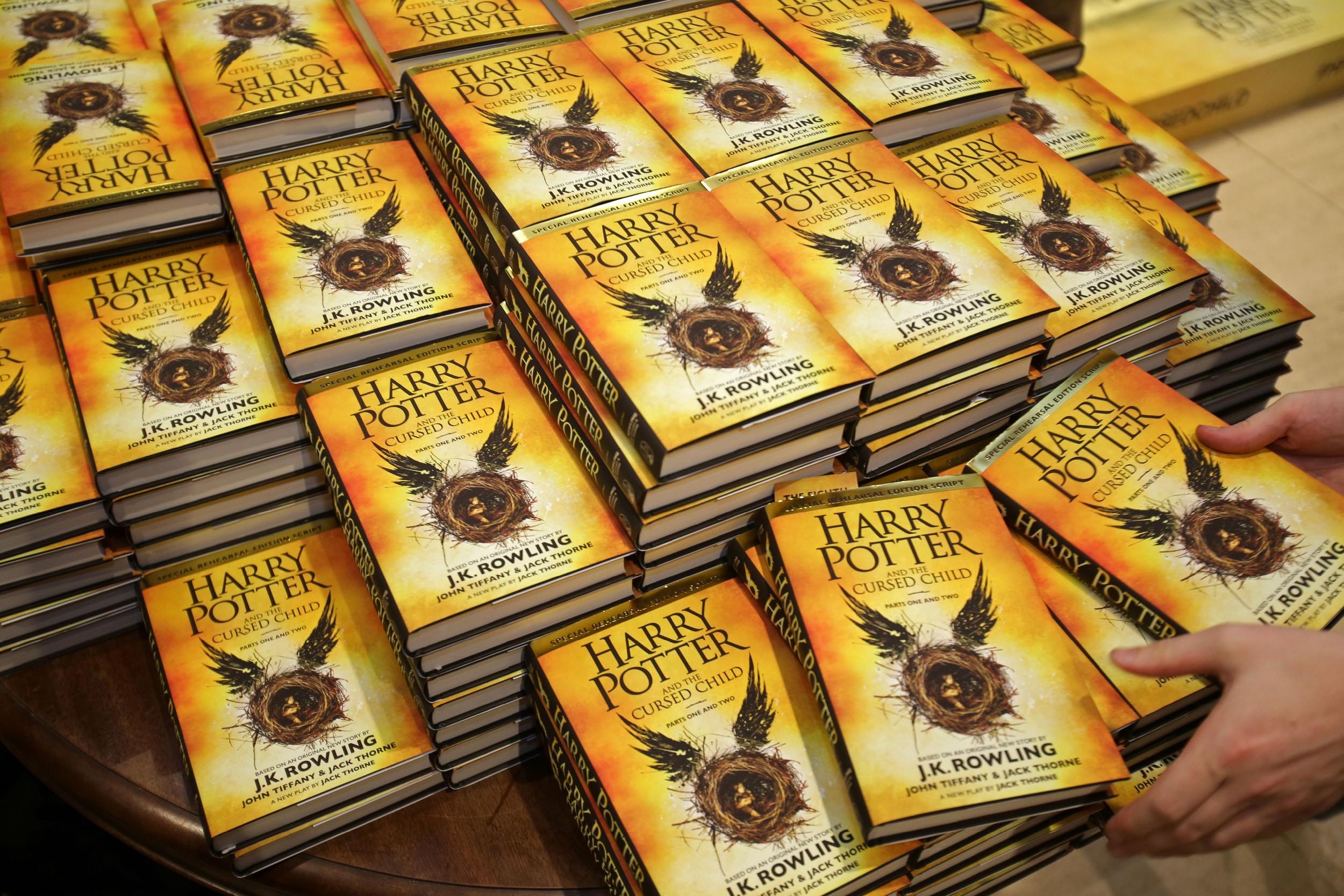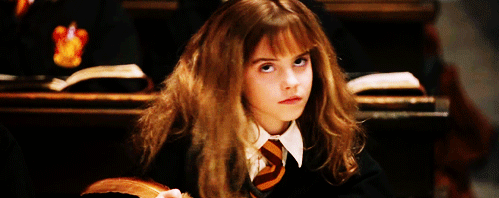Can Wizards Have Midlife Crises?
In the new ‘Harry Potter,’ which characters have aged best? And who’s buying a bright-red convertible broom?
It’s been nearly a decade since we last hung out with Harry Potter and his wizarding gang (on the page, at least). So we couldn’t wait more than a couple of days after the release of Harry Potter and the Cursed Child — the sort-of sequel sort-of written by J.K. Rowling — to share our thoughts. And we found ourselves asking: Under the harsh glare of 2016, which of our now-grown wizards are thriving in their mid-30s? And which ones are squarely in midlife-crisis mode?
We’ll Always Have Snape
Mallory Rubin: There’s a beautiful moment in Harry Potter and the Order of the Phoenix when Harry, having invaded Professor Snape’s worst memory, finds himself gazing down upon his school-aged father. “Excitement exploded in the pit of his stomach,” the line goes. “It was as though he was looking at himself but with deliberate mistakes.” That’s what reading Harry Potter and the Cursed Child feels like, though there’s nothing beautiful about the sensation: The world is sort of familiar, and the characters loosely resemble the ones we’ve long cherished. But the story’s nose is too long; its eyes are the wrong color; and its scar isn’t where it should be.
While that realization weighs as heavily as a bludger on the soul, it’s in retrospect unsurprising. Rowling cowrote Cursed Child with Jack Thorne and John Tiffany, and it shows: Reading the script’s treatment of crucial canonical moments feels like listening to a greatest hits collection played by a ham-fisted cover band. As a result, a story that spans generations feels impossibly small. “That’s a long and complicated story, Scorpius,” Harry says near the script’s conclusion. “And we don’t have time for it.” Albus Severus Potter’s journey is confined to what can fit on a stage and into an evening; his father’s tale could only be capped by the limits of our imaginations.
Thank Peeves, then, for Snape. It’s impossible not to compare the Harry, Ron, and Hermione who appear in Cursed Child to the ones who live in our hearts, because they are, in theory, the same people. It’s maddening to watch Ginny passive-aggressively challenge her husband. It’s downright baffling to see Professor McGonagall cast shame and doubt on pupils who adore her.
But it’s as refreshing as a tasty morsel from the (suddenly violent and insane?) trolley witch to see Snape interact pleasantly, even lovingly, with Ron and Hermione, since the Snape we knew and mourned never once behaved in this fashion. The alternate timeline version of Severus offers a glimpse into a “what if?” universe that can’t fail to live up to our prior Potter experience, because it can’t even really compare. It is, by definition, different and strange, apart and unnatural, wrong in ways both intended and intriguing. And in a tale that often feels like poorly executed fan service, it’s the only fan fiction I actually wanted to read.
Go Home, Draco!
Jason Gallagher: We need to have a serious conversation about the life choices of one Draco Malfoy. For starters …
[taps mic]
WHY IS DRACO MALFOY STILL JUST … HANGING AROUND?
I’m so confused by this. What is Draco doing? He’s in his mid-30s. At some point you have to pick a side — good or evil. Choosing to be a semi-civil brat is not a good look. (See the muggle named Taylor.)
Think about it like this. You’re Draco. You’ve spent most of your life around people you really dislike. You once tried to help evil incarnate destroy those people and take over the wizarding world but failed because you’re a coward. All those people saw it and know it and kind of dislike you for it but you have no future plans to exact any sort of revenge AND YOU STILL JUST INSIST ON BEING KIND OF A DICK. So why, why, my golden-haired brother, would you camp out and make these people your neighbors?
Draco, my dude, you aren’t in school anymore. There is literally no reason to be around them. The world is big and full of unassuming people just ready to be the victims of your bratty vibes. And the best part is, they didn’t witness your past. I know your wife is dead and you have a kid, but you should’ve moved years ago. Go to France. Enroll Scorpius in Beauxbatons Academy of Magic. I hear the academic program is rock-solid.
Let Cedric Diggory Stay Dead
Tate Frazier: Cedric Diggory was not supposed to die. This truth stuck with me throughout my adolescence, all the way up until I swiped right (on my e-book copy) to read the first page of Cursed Child. Luckily, history agrees. Voldemort famously called Cedric a “spare” before ordering his murder, and Albus uses the term in his plea to a morose Amos Diggory: “I know what it is to be the spare. Your son didn’t deserve to be killed, Mr. Diggory. We can help you get him back.” More striking than Albus’s masterful callback is the lack of gravitas the name “Cedric Diggory” now holds in this world 20-odd years after his untimely death.
Albus Dumbledore used Cedric to motivate those who considered joining forces with Voldemort, powerfully stating in The Goblet of Fire: “Remember, if the time should come when you have to make a choice between what is right and what is easy, remember what happened to a boy who was good, and kind, and brave, because he strayed across the path of Lord Voldemort. Remember Cedric Diggory.” Now, remembering Cedric’s name is nothing but another headache (sorry) for Harry Potter. Spare parts can be useful, and even necessary, but Cedric was and is neither of those things. He was the boy who should have lived.
Don’t Turn Back Time
Kate Knibbs: The concept of the Time-Turner was always bad. It was J.K. Rowling’s laziest narrative crutch, and she even admitted it in interviews! But somehow, for Cursed Child, the writers took the weakest plot point from all seven original Harry Potter novels and made it the centerpiece of the narrative, and also changed the way Time-Turners work to make them even more ridiculous. In the novels, a Time-Turner could only go back a few hours. In this play, the characters get ahold of two Time-Turners that can go back decades and create alternate universes.
I get why they wanted to use them this time — it was the simplest way to serve up fan-service nostalgia by bringing back old characters like Snape. But it also made no sense, from top to bottom. You’re expecting me to believe that Hermione would leave a potentially dangerous magical item in her office? She wore a Horcrux around her neck to keep it safe!
I say this as someone who loves Harry Potter. I was a midnight book release person. I had sensual feelings about Sirius Black. Yet: The plot is essentially The Butterfly Effect: Harry Potter’s Bitter Kid Version. Two thumbs down, in this universe and the next.
Pour One Out for the Weasley Boys
Zach Kram: It’s been a rough go for the Weasleys. Arthur? He’s gone, not present at the Ministry or wizarding leisureworld. Bill? Never mentioned. Charlie? He gets a single shout-out and doesn’t appear. Percy? Seems the Ministry is doing just fine without its wannabe Charlie Young. Fred? Still dead, unfortunately, so I guess he didn’t age at all, for better or worse. George? Unclear, but Ron runs the Weasley joke shop now, so something tragic must have befallen the second twin, too. And as for Ron, well, I wish the guy all the Wildfire Whiz-bangs and Pygmy Puff pets his heart desires, but he also gives his nephew a love potion as a “prank” — this after his own experience with the concoction’s nefarious effects. He’s an irresponsible uncle, at a minimum, and that’s the best outcome for any male Weasley in the play.
Burn Dumbledore — Literally
Ben Lindbergh: However J.J. Abrams–esque its cast of characters, however strained its reliance on one storytelling technique, I have no quarrel (or Quirrell) with Cursed Child. J.K. Rowling brought us a beloved franchise, and she’s entitled to prolong its life in any way she wants.
I ask only one thing: Please, for the love of Lily, let Portrait Dumbledore die.
In Cursed Child, Portrait Dumbledore wanders into the frame almost solely so that Harry can make him feel guilty about things he didn’t do. He sounds depressed, bemoaning his opinion’s unimportance and exhibiting terrible body image (“I am paint and memory”). In one scene, he tries to reach out of the canvas but can’t break his bonds, which causes him to cry. Dumbledore already laid down one life. Hasn’t he suffered enough?
Decorating one’s walls with the residue of someone else’s soul is as tasteful as hanging a Horcrux. And being a portrait person — particularly a Hogwarts-headmaster portrait person, which ranks higher on the sentience scale — seems worse than working as a house elf; worse than spending the summer in a cupboard under the stairs; and not clearly any better than being in Azkaban. Yet Dumbledore remains imprisoned in portrait hell, all so Harry can occasionally say something petulant to him, or use him to derive reassurance.
By all appearances, Portrait Dumbledore is a thinking, feeling entity confined in inhumane conditions. This calls for a mercy killing. Wait until he’s asleep and douse him in acetone, or clear the room and cast Firestorm, as the real Dumbledore once did. The method doesn’t matter, as long as it releases the wretch from this purgatorial plane. Harry might miss him, but putting Portrait Dumbledore out of his miserable existence is the only decent thing to do.
Did Harry Have to Grow Up?
Matt Borcas: Although Harry Potter led a pretty cursed existence for the first 18 years of his life, he was fortunate enough to be surrounded by some positive role models. Ron and Hermione taught him the value of friendship; Sirius Black showed him the meaning of bravery; Snape turned out to be a paragon of loyalty; and Cho Chang gave him the ultimate romantic experience (dare to dream, fellow Charry ’shippers!). However, Cursed Child reveals that young Harry’s greatest influence was someone else: the loathsome Uncle Vernon. You see, the adult version of Harry Potter is a bad dad.
Setting aside the fact that Harry is a terribly uncreative namer of offspring, he treats Cursed Child’s protagonist, Albus Severus, like the runt of the Potter litter. Now, Albus may not be the most skilled wizard of all time, but he certainly doesn’t deserve to receive a dirty old blanket as a pre-Hogwarts gift, or to be told “I wish you weren’t my son,” or to be shamed in comparison to his siblings (“I just wish he was more like James or Lily,” Harry tells Ginny in one revealing exchange). Most egregiously, Harry declines to help out Albus’s best friend, Scorpius, who’s been dogged by rumors that he’s Voldemort’s secret progeny. Scorpius’s allegedly impotent father, our old pal Draco Malfoy, kindly asks Harry to dispel these rumors with a simple press release, and Harry refuses. Is that any way to treat your son’s BFF? Harry Potter: good wizard, bad dad.
Alison Herman: Matt’s right: Grown-up Harry sucks.
Remember how the original books kept Harry carefully shielded from magic before his Hogwarts enrollment, thereby ensuring he grew up a sad-sack little kid and not the Justin Bieber of the wizarding world? There’s a reason for that. This dude has now spent 20 years as The Boy Who Lived and Then Saved the World Again After We Were All Assholes to Him Through His Entire Adolescence, and it shows. A validated, establishment Harry Potter is a terrible Harry Potter.
Where Harry was once a wide-eyed audience surrogate, he is now The Man. In fact, he’s the most cartoonish version of The Man possible: He’s a goddamn bureaucrat! Is Auror-ing a young man’s game? Does head of Magical Law Enforcement put more galleons into his magical pension fund? I don’t know, but it torpedoes the character.
Maybe this is the point — that Harry, Hermione, and Co. have settled into dreary adulthood so their kids can become the rabble-rousing, Ministry-infiltrating upstarts they once were. But here’s the thing: Harry’s a terrible dad. He’s the popular jock who just doesn’t get why his nerdy son doesn’t looooove high school like he did, but with Quidditch instead of football. And instead of making the effort to understand his kid, he decides to bring an emotional Uzi to a toy sword fight and tell Albus he sometimes wishes he weren’t his son, which is NOT AN ACCEPTABLE THING A GROWN MAN CAN TELL A YOUNG CHILD, EVEN WHEN THAT CHILD IS THROWING A TANTRUM. Being the bigger man is literally the entire point of fatherhood, but Harry isn’t used to not getting his way.
I love you, Harry, but adulthood is not a good look.
Hermione, Still in Charge
Megan Schuster: It’s not all bad, guys. The line that stole the book for me wasn’t even dialogue — it was a stage direction:
HERMIONE shoots RON a withering look as she aims to hit him but RON jumps out of the way.
RAISE YOUR HAND IF YOUR LIFE HAS FELT EMPTY FOR THE PAST NINE YEARS WITHOUT HERMIONE’S WITHERING LOOKS. Glad we’re all on the same page.

Our girl is back in pure HBIC form, and even though the Grown-ups aren’t the focal point of this story, Hermione hasn’t changed all that much from her teenage self. Hiding things using riddles and books, taking charge in group settings, and seeing the logical path when others get clouded by emotion are all trademarks of the girl I grew up with — only now she has a few more years of experience under her belt and more power at her fingertips. Strong, adult female role models haven’t often existed in the Harry Potter universe — we pretty much got Professor McGonagall (definitely a badass, but up there in age), Petunia Dursley (yack), Dolores Umbridge (double-yack), and an assortment of mentally unstable professors, constantly traveling Aurors, and Mrs. Weasley, a lovely if not adventurous woman.
That’s not a complete list, but you get the picture: It was slim pickings for Hermione to find someone to look up to. Which is why Cursed Child is such an exciting change: In a time when we’re talking about Hillary Clinton shattering glass ceilings, Hermione is at the helm of the Ministry of Magic, McGonagall has taken over the headmistress role at Hogwarts, and even our lead villain is a woman this time around. Rowling has remolded her magical world around adult female leaders, and it’s encouraging to see.

